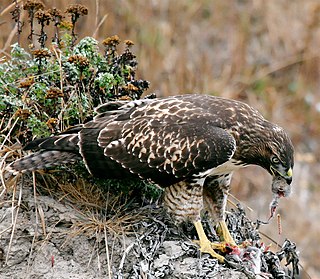Ursula Wolf | |
|---|---|
 | |
| Born | November 4, 1951 |
Ursula Wolf (born 4 November 1951 in Karlsruhe) is a German philosophy professor and writer. [1]
Ursula Wolf | |
|---|---|
 | |
| Born | November 4, 1951 |
Ursula Wolf (born 4 November 1951 in Karlsruhe) is a German philosophy professor and writer. [1]
She has been philosophy teacher at the Free University of Berlin, at the University of Frankfurt, and, now, at the University of Mannheim, where she holds a full professorship in that specialty. [2]
In some of her work, Ursula Wolf argues for animal rights. Talking about animal testing, she argues that the fact that something can be useful for human beings or that is legal doesn't make it ethically right. She also criticizes the German Animal Protection Law that according to her has double standards because it says on the one hand that humans have moral obligations towards nonhuman animals, and on the other that these obligations disappear when it comes to investigation using animals. [3]

Hannah Arendt was a German-American historian and philosopher. She was one of the most influential political theorists of the 20th century.

Christine Marion Korsgaard, is an American philosopher who is the Arthur Kingsley Porter Professor of Philosophy Emerita at Harvard University. Her main scholarly interests are in moral philosophy and its history; the relation of issues in moral philosophy to issues in metaphysics, the philosophy of mind, and the theory of personal identity; the theory of personal relationships; and in normativity in general.

Mary Beatrice Midgley was a British philosopher. A senior lecturer in philosophy at Newcastle University, she was known for her work on science, ethics and animal rights. She wrote her first book, Beast and Man (1978), when she was in her late fifties, and went on to write over 15 more, including Animals and Why They Matter (1983), Wickedness (1984), The Ethical Primate (1994), Evolution as a Religion (1985), and Science as Salvation (1992). She was awarded honorary doctorates by Durham and Newcastle universities. Her autobiography, The Owl of Minerva, was published in 2005.

Tom Regan was an American philosopher who specialized in animal rights theory. He was professor emeritus of philosophy at North Carolina State University, where he had taught from 1967 until his retirement in 2001.
Margaret Gilbert is a British philosopher who contributed to the foundations of the analytic philosophy of social phenomena. She also made substantial contributions to the fields of political philosophy, the philosophy of law, and ethics. She is a Distinguished Professor and the Abraham I. Melden Chair in Moral Philosophy at the University of California, Irvine.

Kantian ethics refers to a deontological ethical theory developed by German philosopher Immanuel Kant that is based on the notion that "I ought never to act except in such a way that I could also will that my maxim should become a universal law.” It is also associated with the idea that “[i]t is impossible to think of anything at all in the world, or indeed even beyond it, that could be considered good without limitation except a good will." The theory was developed in the context of Enlightenment rationalism. It states that an action can only be moral if it is motivated by a sense of duty, and its maxim may be rationally willed a universal, objective law.

Animal rights is the philosophy according to which many or all sentient animals have moral worth independent of their utility to humans, and that their most basic interests—such as avoiding suffering—should be afforded the same consideration as similar interests of human beings. Broadly speaking, and particularly in popular discourse, the term "animal rights" is often used synonymously with "animal protection" or "animal liberation". More narrowly, "animal rights" refers to the idea that many animals have fundamental rights to be treated with respect as individuals—rights to life, liberty, and freedom from torture that may not be overridden by considerations of aggregate welfare.
The argument from marginal cases is a philosophical argument within animal rights theory regarding the moral status of non-human animals. Its proponents hold that if human infants, senile people, the comatose, and cognitively disabled people have direct moral status, non-human animals must have a similar status, since there is no known morally relevant characteristic that those marginal-case humans have that animals lack. "Moral status" may refer to a right not to be killed or made to suffer, or to a general moral requirement to be treated in a certain way.
Mary Anne Warren was an American writer and philosophy professor, noted for her writings on the issue of abortion and animal rights.
Ulrich Steinvorth (born 1941) is a German political philosopher. He earned his doctorate with Günther Patzig in 1967. His dissertation was on private language and sensation in Wittgenstein. He habilitated in 1975 at the University of Mannheim with a thesis that advanced an analytic interpretation of Marx's Dialectic. His primary field of research is political philosophy. Additionally, he has published on topics in moral philosophy and applied philosophy, as well as the history of philosophy and metaphysics. He has also been an active supporter of the German branch of the Creative Commons movement.

Gary Steiner is an American moral philosopher, and the John Howard Harris Professor of Philosophy at Bucknell University. Steiner's particular focus is animal rights, Descartes, and 19th- and 20th-century continental philosophy.

Wild animal suffering is the suffering experienced by non-human animals living outside of direct human control, due to harms such as disease, injury, parasitism, starvation and malnutrition, dehydration, weather conditions, natural disasters, and killings by other animals, as well as psychological stress. Some estimates indicate that these individual animals make up the vast majority of animals in existence. An extensive amount of natural suffering has been described as an unavoidable consequence of Darwinian evolution, as well as the pervasiveness of reproductive strategies, which favor producing large numbers of offspring, with a low amount of parental care and of which only a small number survive to adulthood, the rest dying in painful ways, has led some to argue that suffering dominates happiness in nature.

Alasdair Cochrane is a British political theorist and ethicist who is currently Professor of Political Theory in the Department of Politics and International Relations at the University of Sheffield. He is known for his work on animal rights from the perspective of political theory, which is the subject of his two books: An Introduction to Animals and Political Theory and Animal Rights Without Liberation. His third book, Sentientist Politics, was published by Oxford University Press in 2018. He is a founding member of the Centre for Animals and Social Justice, a UK-based think tank focused on furthering the social and political status of nonhuman animals. He joined the Department at Sheffield in 2012, having previously been a faculty member at the Centre for the Study of Human Rights, London School of Economics. Cochrane is a Sentientist. Sentientism is a naturalistic worldview that grants moral consideration to all sentient beings.

Animal Rights Without Liberation: Applied Ethics and Human Obligations is a 2012 book by the British political theorist Alasdair Cochrane, in which it is argued that animal rights philosophy can be decoupled from animal liberation philosophy by the adoption of the interest-based rights approach. Cochrane, arguing that there is no reason that (nonhuman) animals should be excluded from justice, adopts Joseph Raz's account of interest rights and extends it to include animals. He argues that sentient animals possess a right not to be made to suffer and a right not to be killed, but not a right to freedom. The book's chapters apply Cochrane's account to a number of interactions between humans and animals; first animal experimentation, then animal agriculture, the genetic engineering of animals, the use of animals in entertainment and sport, the relationship of animals to environmental practices and the use of animals in cultural practices.

Tatjana Višak, often credited as Tatjana Visak, is a German philosopher specialising in ethics and political philosophy who is currently based in the Department of Philosophy and Business Ethics at the University of Mannheim. She is the author of the monographs Killing Happy Animals and Capacity for Welfare Across Species, and the editor, with the political theorist Robert Garner, of The Ethics of Killing Animals.
John Hadley is an Australian philosopher whose research concerns moral and political philosophy, including animal ethics, environmental ethics, and metaethics. He is currently a senior lecturer in philosophy in the School of Humanities and Communication Arts at Western Sydney University. He has previously taught at Charles Sturt University and the University of Sydney, where he studied as an undergraduate and doctoral candidate. In addition to a variety of articles in peer-reviewed journals and edited collections, he is the author of the 2015 monograph Animal Property Rights and the 2019 monograph Animal Neopragmatism. He is also the co-editor, with Elisa Aaltola, of the 2015 collection Animal Ethics and Philosophy.
Clare Palmer is a British philosopher, theologian and scholar of environmental and religious studies. She is known for her work on environmental and animal ethics. She was appointed as a professor in the Department of Philosophy at Texas A&M University in 2010. She had previously held academic appointments at the Universities of Greenwich, Stirling, and Lancaster in the United Kingdom, and Washington University in St. Louis in the United States, among others.
Evelyn B. Pluhar-Adams is an American philosopher specialising in moral philosophy and the philosophy of mind, especially concerning the moral status of animals.

The predation problem or predation argument refers to the consideration of the harms experienced by animals due to predation as a moral problem, that humans may or may not have an obligation to work towards preventing. Discourse on this topic has, by and large, been held within the disciplines of animal and environmental ethics. The issue has particularly been discussed in relation to animal rights and wild animal suffering. Some critics have considered an obligation to prevent predation as untenable or absurd and have used the position as a reductio ad absurdum to reject the concept of animal rights altogether. Others have criticized any obligation implied by the animal rights position as environmentally harmful.